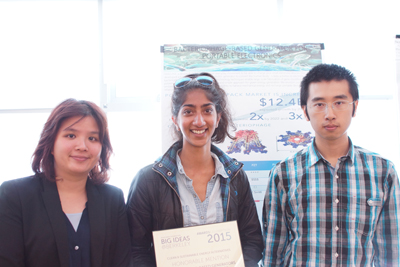 Providing reliable, sustainable and environmentally friendly energy is a significant global challenge today. The International Energy Agency (IEA) estimates that the energy consumption for consumer electronics will be doubled in 2022. Since these electrical devices are predominantly battery driven, it creates a large environmental burden. In addition, the renewable energy solutions currently proposed (such as solar panels and PZT materials), are not environmentally benign. This project seeks to reduce this environmental burden by developing a bacteriophage-based piezoelectric generator to convert the human body’s daily activities ( such as walking) to electricity. Since bacteriophage is a natural material and biotechnology techniques enable large-scale fabrication of gene-modified phages, it potentially offers an environmentally friendly and simple approach to green-energy generation. This project hopes to develop such phage-based electrical generator to power electrical devices by harvesting peoples’ daily movements.
Providing reliable, sustainable and environmentally friendly energy is a significant global challenge today. The International Energy Agency (IEA) estimates that the energy consumption for consumer electronics will be doubled in 2022. Since these electrical devices are predominantly battery driven, it creates a large environmental burden. In addition, the renewable energy solutions currently proposed (such as solar panels and PZT materials), are not environmentally benign. This project seeks to reduce this environmental burden by developing a bacteriophage-based piezoelectric generator to convert the human body’s daily activities ( such as walking) to electricity. Since bacteriophage is a natural material and biotechnology techniques enable large-scale fabrication of gene-modified phages, it potentially offers an environmentally friendly and simple approach to green-energy generation. This project hopes to develop such phage-based electrical generator to power electrical devices by harvesting peoples’ daily movements.
Vision From the Bottom: Providing a Brighter Future (UC Berkeley)
Vision from the Bottom aims to bypass the costs of customized eyeglasses and vision screening by implementing a social business model and supply chain network

